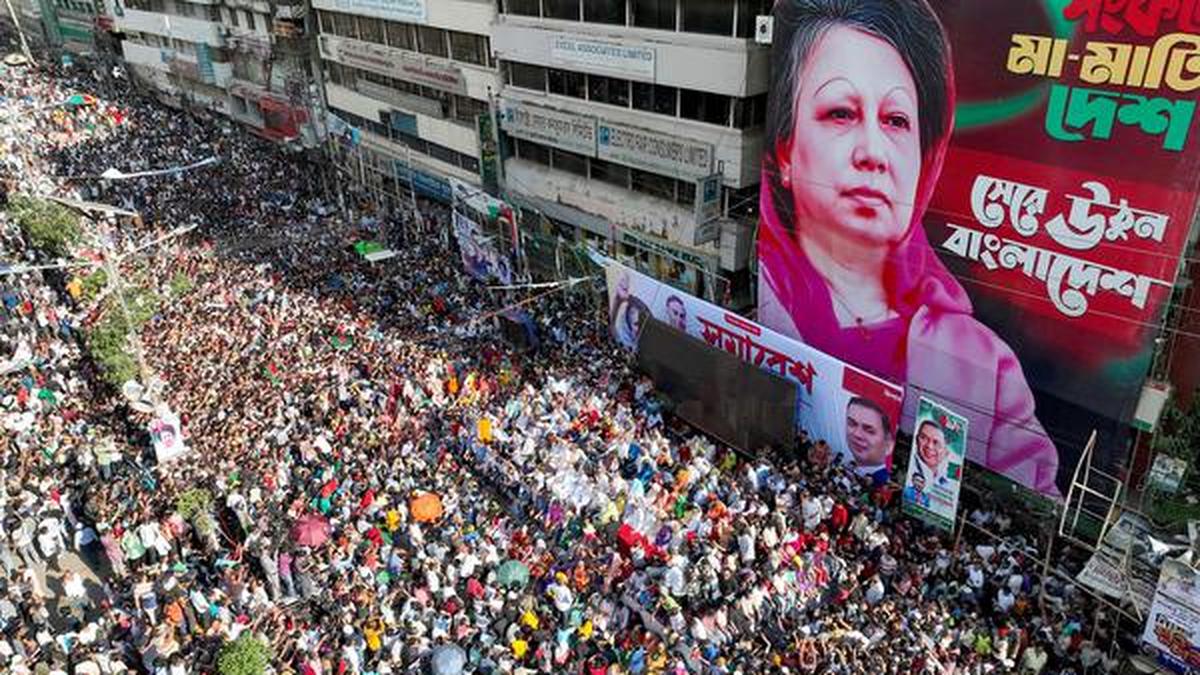The recent political upheaval in Bangladesh has brought an end to Sheikh Hasina’s long reign and paved the way for a potential power shift. After decades of rivalry, Khaleda Zia, the longtime leader of the Bangladesh Nationalist Party (BNP), has been released from house arrest, raising hopes for a political comeback. However, the student-led movement that brought down Hasina’s government might not align with either Zia’s BNP or the Islamist forces with whom they historically have aligned. The upcoming elections promise a complex and potentially volatile political landscape.
The Rise of the BNP: A Resurgence After Years of Suppression
The BNP, led by Khaleda Zia, has long been the main opposition to Hasina’s Awami League. The BNP endured severe suppression under Hasina’s rule, with leaders and activists facing arrests and imprisonment. Despite this, the party managed to maintain its support base and stayed active underground. Zia’s release and the widespread support for the BNP signal a shift in the country’s political landscape. The student-led uprising that forced Hasina’s resignation created an opportunity for the BNP to emerge from the shadows and potentially seize power. Their deep-rooted network and years of experience, alongside a growing sense of frustration with Hasina’s government, give them a significant advantage going into the upcoming elections.
Khaleda Zia’s Legacy and Her Son’s Role
Zia’s own health remains a significant concern. Having suffered numerous health complications while in prison, her ability to lead the party is uncertain. Her supporters are planning to take her abroad for medical care, leaving her son, Tarique Rahman, as the de facto leader of the BNP. Tarique, who has led the party from exile in London since his mother’s imprisonment, faces his own legal challenges but is already being positioned as the potential prime ministerial candidate. His return to Bangladesh is a key part of the BNP’s strategy for the future.
The Role of the Islamist Jamaat-e-Islami
Zia’s history of allying with the Jamaat-e-Islami, an Islamist party with a controversial past, could present a significant obstacle to the BNP’s chances of winning over the secular student movement. These students played a key role in toppling Hasina’s government and have indicated that they are wary of any coalition involving the Jamaat-e-Islami, whose ties to extremism have damaged its reputation in recent years.
Potential Challenges for the BNP
Despite their resurgence, the BNP faces significant challenges. The secular student movement, a key driver in the recent political change, remains unaligned with either Zia’s party or the Jamaat-e-Islami. This could make it difficult for the BNP to gain their support and form a stable government. Moreover, the potential alliance between the BNP and the Jamaat-e-Islami could alienate secular voters, hindering their chances of a clean victory in the upcoming elections.
The Future of Bangladeshi Politics
The future of Bangladeshi politics is shrouded in uncertainty. The recent upheaval marks a watershed moment, but the outcome of the upcoming elections will determine the trajectory of the country’s political future. The student movement’s role in the overthrow of Hasina’s government demonstrates the growing power of youth activism, signaling a potential shift in Bangladeshi politics. While the BNP appears poised to make a comeback, their potential alliance with the Jamaat-e-Islami could pose a significant obstacle.
Takeaways
- The recent political crisis in Bangladesh signals a major shift in power dynamics, with Sheikh Hasina’s long rule ending and a potential power shift towards the BNP.
- The BNP is positioned to make a comeback due to its strong network, years of experience, and a surge in public support after years of suppression under Hasina’s regime.
- The role of the secular student movement is crucial to the future of Bangladeshi politics. The student movement’s unwillingness to engage with either Zia’s BNP or the Islamist Jamaat-e-Islami suggests the potential for a new political force to emerge.
- The BNP’s potential alliance with the Jamaat-e-Islami could prove to be a double-edged sword, attracting support from certain sectors while alienating others.
- The upcoming elections are likely to be pivotal in determining the future direction of Bangladeshi politics, with a range of possibilities, including the emergence of a new political force, the consolidation of the BNP’s power, or a protracted period of political instability.




